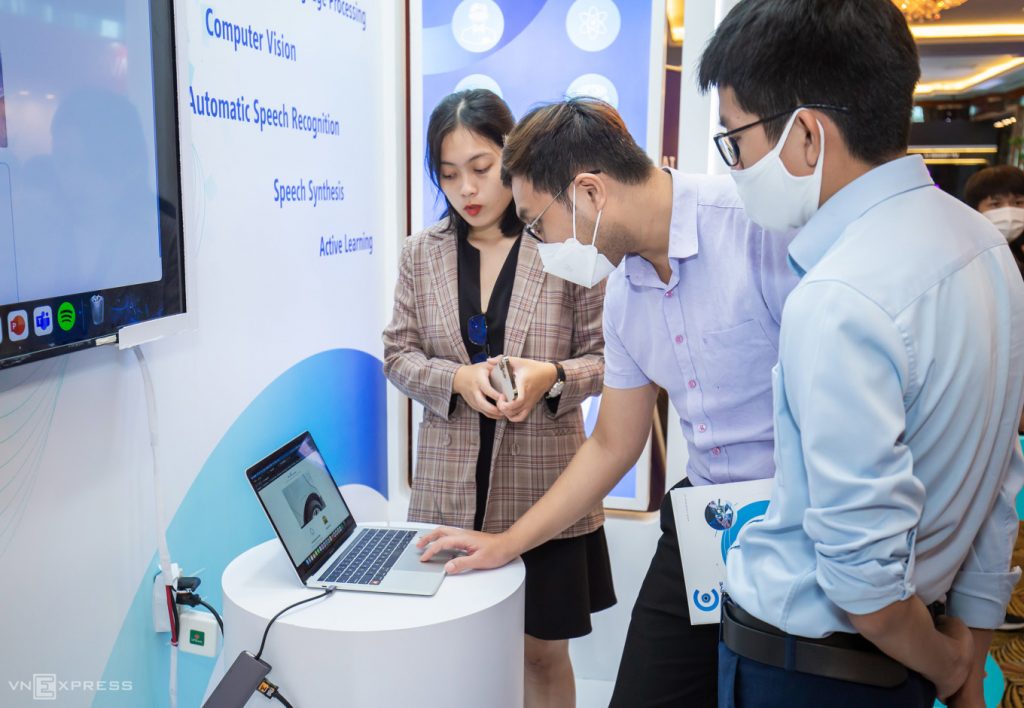Lack of flexibility and opportunities and low incomes deter them from working for the public sector, IT workers say.
Two years ago Ho Dac Thanh Minh, 24, received offers from a tech company partly owned by the government and a private firm, and he chose the latter.
“The private firm allows me to work with foreign partners, enabling me to learn and improve,” he says while talking about his choice.
He graduated from the University of Information Technology in 2022, a time when IT workers in positions like system management and security earned VND20 million ($790) even if they had less than a year’s experience.
He says the public company offered attractive benefits though the basic salary was not too high, but did not specialize in IT, and its workers only work jobs in accordance with what the business requires.

This made him fear he might gradually lose his skills.
“It takes just three years of not being up-to-date for an IT worker to become obsolete,” he says.
“The priority of young IT workers is to learn new things. It is difficult for a state company to provide such an environment.”
Nguyen Xuan Vinh, 34, a software engineer for a tech company in HCMC, says he has never been interested in working in the public sector.
The private sector can offer very high salaries and benefits in comparison, he says.
The IT industry also requires extensive use of English and working in a multinational environment. Such working conditions can be more easily found in private companies, he says.
Le Quoc Khuong, head of the human resources recruitment and counseling department at ManpowerGroup Vietnam Company, says the public sector cannot compete with private companies when it comes to salaries, benefits, working environment, and the like.
Recruitment in the IT industry is expected to rise by 20-25% a year for the next three to five years as businesses undergo digital transformation, he says.

Labor market reports show that the average monthly incomes of IT engineers is VND20-50 million and managers and experts is VND80-150 million.
A tech director could earn up to VND250 million.
But in the public sector, developers and those in systems management, cybersecurity and data analysis get paid a monthly salary of VND5-10 million, while managers get VND10-30 million, according to ManpowerGroup Vietnam.
IT workers expect flexible working schedules and even to do remote work, a work week of four or five days and not more than 40 hours of work a week.
They also expect various bonuses, including for projects, and employee stock options.
Other factors like an open working environment, innovation and the opportunity to access the latest technologies also entice IT workers, Khuong says.
“Nevertheless, despite its limitations compared to the private sector, the public sector has certain advantages that attract IT workers such as stability and low risk.”
People working in the public sector also have the opportunity to buy social housing [at low prices] and get certain other benefits, and companies in it need to advertise such perks better to attract talent, he adds.
Thai Quoc Dung, director of Mesoneer, a Swiss software company with offices in HCMC and Da Nang, lauds the government for building hi-tech zones and adopting policies to support scientists.
But to compete with private businesses, policies need to be improved based on the needs of workers, he says, pointing out that Mesoneer personalizes benefits for each employee.
Minh says government firms should enable IT workers to access the latest technologies to make them stay.
Vinh says authorities should also look into part-time cooperation with workers so they can contribute their skills to the public sector. Such a scheme would both save costs for businesses while not tying down IT workers like a full-time job does.






